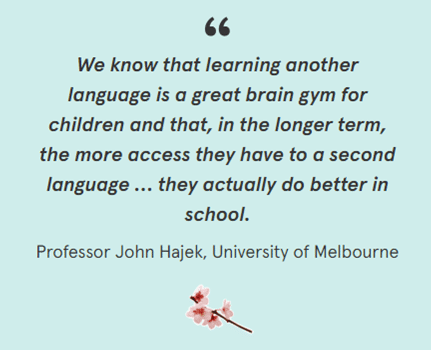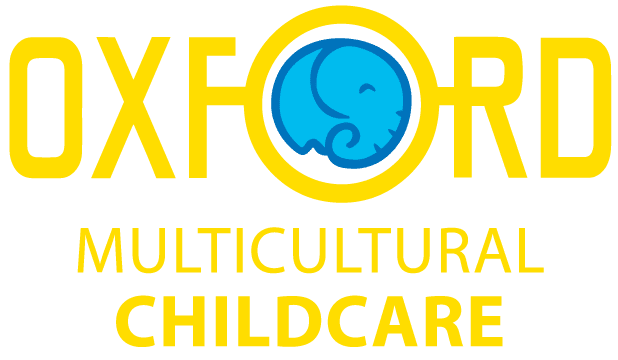Early Learning Programs
Our programmes offer a variety of learning areas and experiences which allow children to participate and achieve to their individual potential.
Staff continually use their past and current experiences to engage the children’s attention and build opportunities to learn in a play-based hands on way. The learning experiences that your child takes part in are directed by their individual needs and interests and promote the following areas:
- Physical Development to promote each child’s growth and general health.
- Social and Emotional Development to help each child develop a positive self esteem and the self-confidence needed for daily living.
- To assist each child in the development of positive interpersonal skills, including values, attitudes, fairness, cooperation and conflict resolution strategies of social reasoning and negotiation.
- Motor Skills to help each child develop fine and gross motor skills appropriate to his/her age.
- Intellectual Development to assist each child in developing language skills, problem solving ability and perception.
- Creativity to allow each child to develop creative potential.
- Self Help Skills to encourage each child to develop skills and independence in caring for him/herself.
We provide a nurturing environment that will allow your child to grow and develop physically, emotionally, intellectually, culturally and socially. We celebrate the uniqueness of each child empowering them to reach their full potential while all the time they are having fun!
Incursions
As part of our programs, we love to bring the excursions into the centres, our inscursions! Spaced throughout the year we invite various companies to our centres to give our children a variety of educational fun activities that we ourselves can’t provide. These are all provided at no extra cost to our families. It can include, but is not limited to:
- Firefighter Visits for Fire Safety
- Police Visit
- Living Safely with Dogs
- Butterfly Enclosures
- Matilda’s Farmyard
- Puppet Shows
- Music Sessions
- Hatching Chicks
- And more!
In addition to these external companies coming in, we also conduct our own events such as:
- Easter Hat Parade
- Pyjama Week
- Funky Hair Week
- Multicultural March
- Christmas Parties
- Teddy Bear’s Picnic
- Open House Events
- And more!
Electronic Media
The preschoolers have access to our computers and touchscreens using early childhood literacy and numeracy programs. Children will complete many interactive experiences on the programs throughout the year.
Technology and Media items will only be used as an extension to the daily program assisting in development of social, physical, emotional, cognitive, language and creative potential of each child. Technology and Media items will be incorporated as an additional resource, not a substitute.
Guidelines for use:
- To assist in expanding the content of the daily program and current affairs
- Programs must be carefully selected and be suitable to the needs and development levels of each child watching
- Chosen programs should hold the interests of the children
- Programs depicting violence e.g. graphic news reports should not be shown
- Children are to view ‘G’ rated programs only
- Information regarding programs viewed will be shared with families
- All content will be socially and culturally considerate and appropriate.
Timeframes for ‘screen time’ according to Australia’s Physical Activity and Sedentary Behaviour Guidelines are:
- Children younger than 2 years of age should not spend any time in front of a screen.
- Children 2 to 5 years of age should be limited to less than one hour per day.
- Children 5-12 years of age should limit screen time for entertainment to no more than 2 hours a day.
Children are “growing up digital”.
Children will be taught healthy concepts of digital use and citizenship.
Only quality developmentally appropriate interactive media will be use
School Readiness
Starting school is a significant milestone in the life of any child and family. Our school readiness program refers to daily-programmed activities and experiences that are implemented throughout the year, encouraging the developmental skills that are optimal for children to retain before commencing school. For children attending school the following year, we will implement a ‘transition to school program’ which is additional activities and experiences offered to children to help prepare them for a smooth transition to a school environment.
The school readiness programmes still maintain our open-ended, individual learning model, whilst also providing a small group structured environment where the children can develop and practise skills to follow teacher direction and complete tasks.
Your child will enjoy a fun introduction to:
- Reading and phonemic awareness
- Name recognition and letter writing
- Numbers – counting objects and numerals
- Shapes
- Colours
- Role play
- Singing & Musical activities
Outdoor Play
We believe that outdoor experiences are much more important than ‘run around time’.
Young children need daily outdoor experiences to enhance their rapid physical development.
At Little Peoples Early Learning Centre’s the outdoors is viewed as a place for the children to grow and learn, that is why staff create outdoor learning environments that are engaging and interesting. Outdoor experiences will be planned to;
- Allow children to develop gross motor skills. Each day activities are planned that will allow for development of balance, coordination and strength.
- Allow children to learn about the outdoor environment. Water play and sand play are an essential part of outdoor play, the environment offers many opportunities for science activities.
- Give children freedom not possible inside.
- Allow for passive and active areas. Inside activities are extended into the outdoor environment. E.g. home corner, craft, book corner away from the active areas.
- Allow for maximum child/adult ratio, enabling adult interaction in child initiated and adult initiated activities. Outdoor time is an integral part of our daily program and is not seen as a time for undirected play supervised by adults.
- Ensure children are adequately sheltered from weather and are dressed appropriately for prevailing weather conditions.
- All children and staff must wear hats when outside.
Languages
Children in our transition to school group can experience the magic and possibilities of a new language as we incorporate Early Learning Languages Australia within our curriculum.
ELLA is a digital, play-based language learning program. This Australian Government initiative inspires children by driving a genuine interest in a new language and culture.
Please speak to your child’s educators to see what language your child will be learning as well as how you may support your child’s learning at home. (https://www.ella.edu.au/ella-program/)
Languages we offer through ELLA:
- French
- Italian
- Hindi
- Chinese (Mandarin)
- Japanese

Parent Participation & Daily Routines
Families are the single most powerful influence in the early development of a child.
We operate as an open door policy, where families are welcome to visit our service. We believe families are children’s first teachers and therefore embrace family involvement and participation within our curriculum. We value your ideas, suggestions and contributions into all aspects of our service. If a child has a special interest that a parent wishes to share with us you should let the educators know so that they can incorporate this into your child’s programs.
Effective relationships between families and educators are fundamental to the quality of education and care that the children receive. Families can provide invaluable information about children’s interests, strengths, abilities as well as feedback that assists teams to develop improvement plans that are practical and focussed on meeting the needs of all children and their families.
Families are always welcome to spend time in the service and share special moments with their children. We also host many special days and celebrate a variety of events throughout the year for which families are most welcome to attend.
All our rooms have a daily reflections journal for parents to read and provide feedback at the end of the day, you may also like to use the knowledge you gain from this book to converse with your child about their day.
Each child will be given an assigned parent pocket for receipts, newsletters and messages. The parent pockets should be checked regularly.
Our Daily routines although flexible provide security and continuity for the children. Routines vary so please make enquiries with your local centre’s Nominated Supervisor.
Programming
The Early Years Learning Framework (Being, Belonging, Becoming) describes the principles, practice and outcomes essential to support and enhance young children’s learning from birth to five years of age, as well as their transition to school. The framework has a strong emphasis on play-based learning as play is the best vehicle for young children’s learning providing the most appropriate stimulus for brain development.
Little Peoples Early Learning Centres provide a written program using the following guidelines:
- Realistic goals for individual children set from observations and recordings of each child’s special interests and developmental records. These goals include long range goals for the group as well as goals for individual children.
- Emphasise learning as an interactive process with materials and people. The environment is arranged so that children learn through active participation.
We provide a balance of activities :
- Indoor/outdoor;
- Quiet/active;
- Individual/small group/large group;
- Child initiated/adult initiated;
- Large motor/small motor.
- Children select their own activities during the day from a range of several activities the teacher has planned or the child has initiated.
- We provide a range of developmentally appropriate activities and materials.
- We provide a range of culturally diverse and appropriate activities and materials.
- Daily routines are flexible according to the changes in weather, special celebrations and visitors and any other situations.
- We provide for integration of special needs children.
- We reflect cultural and linguistic diversity in all areas of the program. Gender equity and anti bias inclusive.
Evaluations of the programs are carried out continuously and include:
- The achievement of objectives;
- The appropriateness of teaching methods;
- The suitability of resources;
- The desired or undesired outcome;
- The effectiveness of planning/preparation;
- The reestablishment of objectives;
- Any spontaneous activities are recorded and evaluated.
Children’s investigations are documented and displayed throughout the centre. This allows parents to see children’s involvement and learning and allows them to follow through with their child’s interests.
Little Peoples ELC’s adhere to the National Quality Standard, and have implemented a Quality Improvement Plan (QIP), which is an ongoing improvement document under continual review. The Quality Improvement Plans are available for viewing.
Developmental Records
Our centres maintain developmental records for individual children in our care.
Our educators become aware of children’s interest by observing and listening to children’s play, interactions within the environment and information provided by parents.
This will be documented in the form of written observations, photographs, examples of children’s work e.g. portfolio and daily evaluations.
Individual development records are available for parents to discuss with a staff member, if requested.
